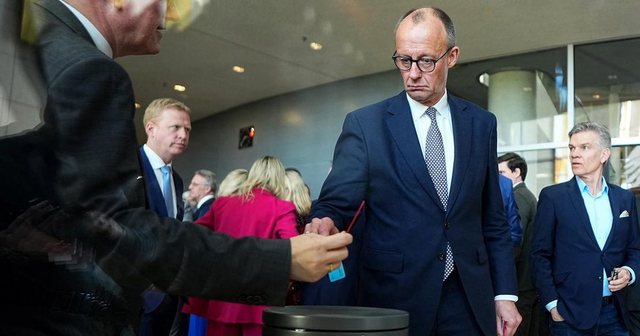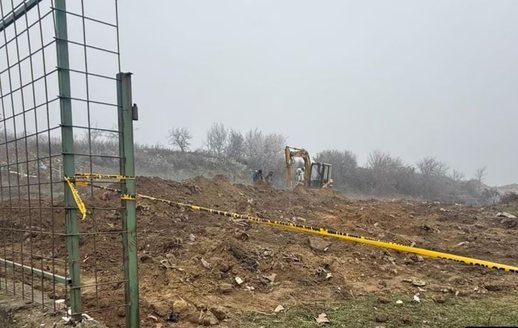
DW: Germany will invest one billion euros, but how and where?


Building bridges, renovating railways, investing in climate protection, equipping the Bundeswehr: money alone is not enough. Rapid planning, companies and qualified workers are required.
Berlin-Brandenburg Airport, Hamburg's Elbphilharmonie, Stuttgart 21 railway station – Germany has plenty of bad examples of major projects that spiraled out of control in terms of costs and construction time. Planning errors, construction defects, cost explosions, legal disputes, years of construction delays – the list is long.
The reasons are varied. Ranging from poorly thought-out planning to lengthy approval procedures and shortages of staff and materials at construction sites. In Stuttgart, there was recently uncertainty and delays because a corporation sold parts of its business that were building the central digital infrastructure.
Money alone doesn't solve problems.
For the Taxpayers' Association (BdSt), this is reason enough to consider the multi-billion euro financial package for defense and infrastructure, drawn up by the CDU/CSU and SPD, as wrong. After the Bundestag, the Bundesrat, the parliament of the 16 states, also gave the green light to the financing package for the Infrastructure and Defense Fund. In addition to practically unlimited defense spending, the Infrastructure Fund also provides for 500 billion euros to be invested over the next twelve years.
There is no shortage of financial resources to solve Germany's investment backlog, criticized BdSt President Reiner Holznagel. "Germany is drowning in bureaucracy and inefficient structures. We need faster approval procedures and clear responsibilities! But a new debt fund will not solve all these problems."
Economist Veronika Grimm also sees it this way. The additional funds from the debt package cannot be spent so quickly. The planning and approval procedures are "an obstacle to the release of funds," Grimm told the Budget Committee in the Bundestag.
The professor at the Technical University of Nuremberg is urgently calling for “growth-enhancing reforms.” The current forecast is that no effects on economic growth are expected from the debt package in 2025. She expects a moderate effect in 2026. “In 2027 it will be clear how well this money is being used.”
The construction industry and its major problems
Kur bëhet fjalë për politikën, parashikimi i Grimm duhet të ndezë këmbanat e alarmit. Miliardat e borxhit kanë për qëllim kryesisht të ndihmojnë në ringjalljen e ekonomisë së Gjermanisë sa më shpejt të jetë e mundur. “Ne mund të fillojmë menjëherë. Industria e ndërtimit ka kapacitetin për porosi të reja dhe njohuritë për të zbatuar projektet e nevojshme të infrastrukturës,” thotë Felix Pakleppa, drejtor i Shoqatës Gjermane të Ndërtimit. Industria aktualisht është e pashfrytëzuar, me 40 për qind të të gjitha kompanive të ndërtimit që ankohen për mungesë porosish.
Në sektorin e ndërtimit, porositë kanë rënë ndjeshëm në disa raste gjatë dy vitet e fundit. Pushtimi rus i Ukrainës, kriza e mëvonshme energjetike dhe inflacioni kanë bërë që çmimet të rriten ndjeshëm. Kjo ka ngadalësuar veçanërisht ndërtimin e banesave.
Procedurat e miratimit zgjasin shumë
Por ndërtimtaria kërkon me vendosmëri reduktimin e burokracisë. Mënyra se si po shkojnë gjërat tani nuk është më e pranueshme. “Në ndërtimin e autostradave, deri në 85 për qind të kohës mund të shpenzohet në proceset e planifikimit – vetëm 15 për qind në vetë ndërtimin,” raporton Pakleppa.
Prej vitesh ka pasur thirrje për uljen e burokracisë. Ndërkohë, çdo e dyta kompani e sheh barrën e procedurave të gjata administrative, detyrimeve dhe dokumentacionit, raportimit statistikor dhe rregulloreve për mbrojtjen e të dhënave si pengesën më të madhe për një rritje më të madhe ekonomike. Instituti ifo në Mynih shkroi në një studim në fund të vitit 2024: “Për shkak të burokracisë së tepërt, Gjermania po humbet deri në 146 miliardë euro në prodhim ekonomik në vit”.
Mungesa e punëtorëve të kualifikuar do të rritet
Një problem tjetër mund të jetë mungesa e punëtorëve të kualifikuar dhe e fuqisë punëtore që shihet prej vitesh. Kjo çështja nuk është më në kryetitujt e mediave sepse Gjermania është futur në vitin e tretë të recesionit. Pushimet nga puna dhe shkurtimi i orarit të punës janë bërë normale. Por kjo mund të ndryshojë shpejt.
Së pari, “boshllëku i prodhimit” do të mbyllet, thotë ekonomisti Grimm. Më pas, kompanitë mund të kenë shumë më tepër porosi sesa mund të trajtojnë realisht me stafin e tyre. Atëherë do të jetë e rëndësishme rritja e kapaciteteve punëtore.
Oferta dhe kërkesa përcaktojnë çmimin
Por nga do të vijnë punëtorët shtesë? Gjermania është një shoqëri në plakje dhe në vitet e ardhshme një numër veçanërisht i madh njerëzish do të dalin në pension. Ka mungesë të pasardhësve. Një studim i Fondacionit Bertelsmann nga fundi i vitit 2024 thotë se rreth 288.000 punëtorë nga jashtë nevojiten çdo vit deri në vitin 2040. Studimi nuk ka marrë ende parasysh nevojat që mund të lindin nga paketa për infrastrukturën.
Veronika Grimm paralajmëron se fondet shtesë duhet “të rrisin realisht potencialin e prodhimit”. “Përndryshe do të ketë presion shtesë të çmimeve.” Nëse ka më shumë porosi se kapaciteti, kompanitë mund të kërkojnë çdo gjë që paguhet. Sidomos kur diçka duhet të ndodhë shumë shpejt.
Transport infrastructure is top notch
Germany's infrastructure has been neglected for decades. Some 5,000 bridges are so dilapidated that they urgently need to be renovated. Deutsche Bahn is severely overburdened. It has launched the largest renovation project in its history and plans to renovate over 4,000 kilometers of track in 40 phases over the next few years.
To quickly rearm the Bundeswehr, weapons and military equipment must be procured at shorter notice than ever before. Arms companies are already working at their borders because of the war in Ukraine.
Under Donald Trump, the US is no longer a reliable NATO partner. Arms contracts are increasingly being awarded to Europe. This promises golden times for companies like Rheinmetall, but also Airbus. They can practically dictate prices.
With a lot of money comes a lot of desires. Deutsche Bahn has already calculated that it will need 290 billion euros to renew its infrastructure by 2034. An estimate by the Federal Ministry of Transport estimates that 140 billion euros are needed just to maintain the federal highways, Germany's main roads.
With these two amounts alone, the 500 billion euro infrastructure package would be spent almost in full. Accordingly, a recent analysis by the consulting firm Strategy&, a subsidiary of the auditing firm PwC, has calculated that this will not be enough. According to the firm, the federal, state and municipal governments will need 982.1 billion euros by 2035./ DW
Happening now...

83 mandates are not immunity for Rama's friends
ideas

Teatri që fsheh prapaskenën

Berisha's red line and the black line of democracy in the DP

top
Alfa recipes
TRENDING 
services
- POLICE129
- STREET POLICE126
- AMBULANCE112
- FIREFIGHTER128

























